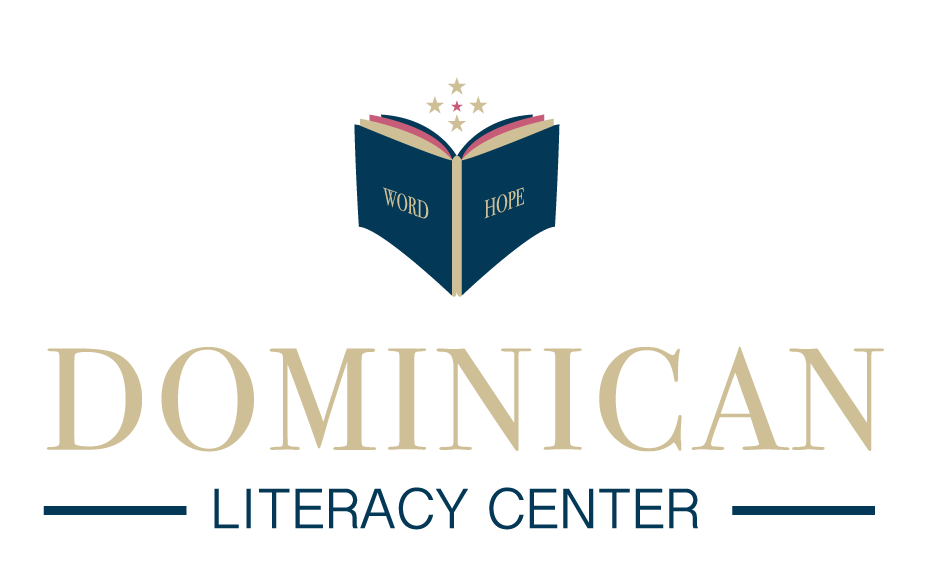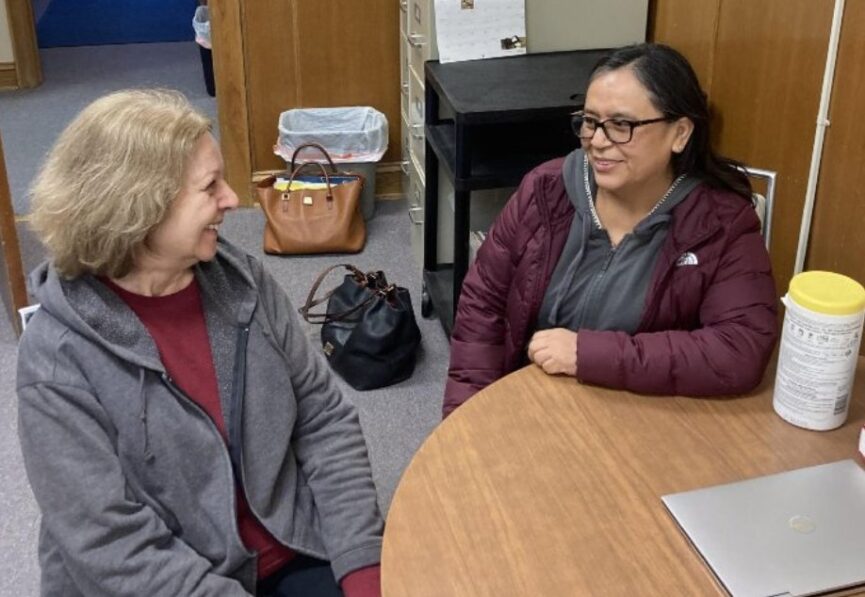Article from the Beacon News:
Jocefina Vargas has spent the last three decades — since coming to Aurora from Mexico as an 18-year-old — learning the English language.
She got a good start her one and only year at East Aurora High School, and certainly made progress in Waubonsee Community College’s ESL program five years later.
But speaking the language “is harder than what you learn in your head,” she found out. And it wasn’t until Vargas began taking one-on-one classes with a tutor at the Dominican Literacy Center on the East Side of Aurora a few years ago that she finally gained the confidence she needed to “be able to speak” without the fear of being laughed at or misunderstood.
Vargas is but one face of the thousands whose lives have been enriched by the Dominican Literacy Center since it was opened in 1993 by Sister Kathleen Ryan with a card table and two chairs in a church basement.
Over the last 30 years this program has grown into a large and thriving asset to a city that, likewise, is becoming more diverse. In the process, the center has received plenty of accolades for offering not only English skills to women who have nowhere else to turn but also friendships and resource help for families, including classes that have assisted hundreds of men and women in gaining their U.S. citizenship.
Last month the center added yet another big feather in its already impressive hat.
On Oct. 18, Ryan and the Dominican Literacy Center’s only other two full-time employees, Alison Brzezinski and Sister Jane Beckman, attended a conference at the Library of Congress in Washington, D.C., where they received one of its prestigious Literacy Awards.
The honor was just one of 15 handed out by the Library of Congress to organizations in the U.S. and around the globe for outstanding innovative and effective practices.
Also recognized at the event were three larger organizations, including one that has become near and dear to the heart of Sister Ryan: The News Literacy Project, which was founded in 2008 to help teachers, students and the general public navigate and analyze media messages at such a critical time in history.
As digital devices become more ubiquitous, even in middle- and low-income countries, the challenge has become to not only promote literacy but to fight the threat of malicious misinformation, insists Ryan.
It is a complicated challenge that will only grow more complex, she added, which will impact even small organizations like the Dominican Literacy Center.
According to the awards notification letter, however, this beloved Aurora nonprofit was specifically recognized for its simplicity in successfully “building one-on-one relationships and grassroots organizing that keeps humanity at the heart of literacy experiences.”
Ryan and her small but mighty army of employees and volunteers appreciated this effusive praise, as well as the chance to celebrate and network with the other winners from 17 states and five countries, including Vietnam, Indonesia and New Zealand.
But they also are grateful for the $5,000 prize that came with this award, which will go a long way in keeping the center up and running.
Certainly the need is there.
Over the years the literacy center has expanded its footprint to include hundreds of volunteers working with thousands of immigrants in their quest to learn to read, write and speak English. And, where it once worked mostly with Mexican immigrants like Vargas, it is now serving women from over 20 countries, including Venezuela, South Korea, Haiti and Russia.
Vargas has become good friends with many of them, not just through tutoring sessions at the literacy center on Vermont Avenue but from the twice-weekly “conversation classes” run by Ryan, where current and former students take part in discussions and activities that she says “almost force them to speak to each other.”
Says Ryan of the learning process, “it’s a long road from having it in your brain to having it come out of your mouth.”
No one knows that more than the students.
“Before, I never wanted to talk,” admitted Vargas, who was encouraged to take classes at the literacy center thanks to several teachers in the West Aurora School District, where she works as a custodian.
The need to improve her English skills became more critical, she said, after moving from an elementary school to West High, where radios were relied upon to communicate, and Vargas realized she had no choice but to be clearly understood at all times.
“I felt inferior,” she said. “I used to be afraid to ask for help because I thought people would laugh at me.
“Not anymore.”
Her teacher, Joan Dollinger, has seen the remarkable confidence boost in Vargas, who is now speaking at such a high level, she can serve as a teacher to others in her conversation group.
“And I have learned so much from her, as well,” said Dollinger, adding that she continues to be inspired by the challenges immigrants go through to achieve what so many of us take for granted.
It’s that simplicity of format that has made this program so enduring, and so replicated in other towns and in other states, pointed out Ryan.
“The real measure of success is not in the sophistication of its program … but rather in the difference it makes in the lives of its students,” wrote longtime volunteer Kathleen Gallagher in a letter of endorsement to the Library of Congress.
“DLC delivers much more than literacy. It provides the resources necessary to achieve a full and purposeful life in an otherwise strange environment.”
dcrosby @tribpub.com

